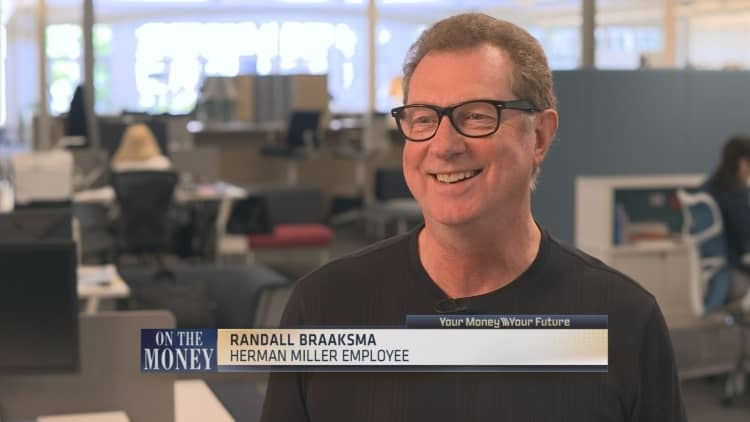
If your retirement strategy is centered on working as long as possible, better check that the boss is on board.
Mirroring what workers have said themselves, new data from the TransAmerica Center for Retirement Studies found that nearly three-quarters of employers say many of their employees expect to work past age 65 or do not plan to retire at all. In late 2016, the group surveyed 901 small companies (five to 99 employees), 301 medium-sized companies (100 to 499 employees) and 600 large companies (500-plus employees).
Four in five companies say they support employees working into their 60s and older, and 71 percent say they are "aging friendly." Yet workplace policies show a less promising picture for aging workers, said Catherine Collinson, president of the Transamerica Center for Retirement Studies.
"Employers are aware that many workers plan to work past 65 and fully retire at an older age, but that awareness has to yet to translate into action," she said.
Only 39 percent of companies in the Transamerica survey offer flexible schedules, for example, while 31 percent allow workers to transition from full-time to part-time work and 27 percent, to a less demanding or stressful position.
Anecdotally, several impediments have hindered improvements, Collinson said. Benefit structures still associate certain key ages (such as 65) with retirement even as people live and work longer, contributing to institutionalized ageism, she said. Adopting phased or flexible retirement policies can also be tricky from a legal standpoint.
"[Employers] just don't even know how to structure the conversation without opening themselves up to liability for age discrimination," she said.
Aging in (work)place
Start by assessing your chances of working past 65 in your current job, said Ted Beck, president and chief executive of the National Endowment for Financial Education.
"Take a hard look at the organization and the industry you're in," he said. "What's the long-term prognosis?"
It's not a good sign if you don't have any colleagues over age 65, and the company doesn't have any age-friendly policies or initiatives in place. A company or industry that is consolidating or struggling can also be a red flag, he said.
Nearly half of retirees leave the workforce earlier than planned, according to the 2017 Retirement Confidence Survey from the Employee Benefit Research Institute — and, of those, 26 percent cite changes at their company such as a downsizing or closure. In the TransAmerica survey, 12 percent of companies said they had employees who recently retired as a result of a layoff or termination, and 15 percent, due to organizational changes.
(Don't forget about personal risk factors, either. In the EBRI pool of workers who retired earlier than planned, 41 percent did so due to health problems or disability, and another 14 percent, to provide care for a spouse or other family member.)
Expand your plan to consider options such as creating a consulting business, or making a career pivot, Beck said. That can pay off: A recent paper from the Center for Retirement Research at Boston College found that workers who voluntarily change jobs in their 50s tend to stay in the workforce longer than those who stay put.
But try to find an opportunity to volunteer or otherwise test drive that encore career before you commit, Beck said.
Take advantage of on-the-job training to keep your skills current, said Collinson at Transamerica. That can help boost prospects at your current job, and make you more employable if you're thinking of switching employers or fields.
"We live in a very competitive labor market, and it's up to us to be superstars," she said.

If you're hoping for a phased retirement, consider the impact that could have on your finances, said Beck at the National Endowment for Financial Education. Check that your budget could handle a reduced income, factoring in that you may need to cover your own health insurance.
Research current policies and be prepared to approach your boss to ask for flexibility. Aim to provide details on how that transition might work (timeline, salary, tasks) as well as point out the value you bring to the table, Beck said.
"Take an inventory about what's especially relevant in your skill base to your employer, and basically build a sales pitch for yourself," he said.


